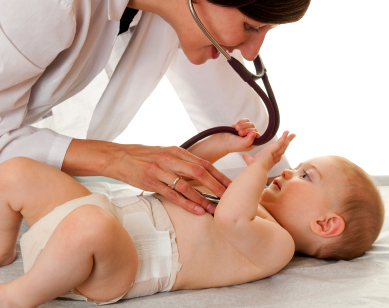 I will do anything not to be in a hospital bed. I checked myself out as quickly as I could each time I was admitted (three obstetrical admissions) and once, after a day-surgery procedure, got in trouble with the recovery room nurse because she found me out of bed, getting dressed, before I was supposed to be on my feet.
I will do anything not to be in a hospital bed. I checked myself out as quickly as I could each time I was admitted (three obstetrical admissions) and once, after a day-surgery procedure, got in trouble with the recovery room nurse because she found me out of bed, getting dressed, before I was supposed to be on my feet.
Still, as a doctor, I am capable of taking great comfort in the idea that a patient of mine is hospitalized, under observation, easily traced. And I know from clinical experience that there are many moments when the hospital can actually be a reassuring and helpful place for pediatric patients and their families.
Sometimes the question is whether it’s the patient or the doctor who needs reassurance about when it’s time to go home.
For instance, I recently found myself worrying over whether to send a mother and her very young baby home late one evening, knowing they would have to come back to the clinic in the morning, or whether to admit the baby overnight.
The problem was the weather; a bad storm was forecast for the area. Were we really doing this mother and her baby a favor by sending them out and telling them to come back in less than 24 hours? After all, the mom was recently postpartum.
The cause of our concern was a liver condition called hyperbilirubinemia. It occurs when the newborn liver is not fully able to break down hemoglobin in order for the end products to be excreted. The unconjugated bilirubin builds up in the baby’s blood, causing jaundice, and its level can get dangerously high.
Now it was late afternoon and we were waiting for the results of the measurement of the baby’s bilirubin level to come back. The level came back too low for phototherapy, but only by a little—it had been rising faster than anyone liked. So the right thing to do was to send the mother and the baby home and have them come back the next day to have the level rechecked.
That’s when the questions kicked in. What if the storm was as bad as some of the weather forecasters had predicted? What if the mother ended up stuck and couldn’t get back? Most important, what if the bilirubin level rose even more quickly than we expected?
We went around a few times—the resident, the nurse, me—and talked it over with the inpatient attending, reviewing the mother’s transportation options and reexamining the baby. In the end, we let them go home—though as I was leaving that evening, hurrying home to beat the storm, I saw them sitting in the lobby, waiting for their ride, and I worried all over again.
I thought about catastrophic storms and bad roads and various disasters—all easily averted if the baby were hospitalized.
In the end, the storm was a minor one. Mother and child made it in without a problem the next day and the bilirubin level was lower. The baby avoided an unnecessary (and expensive) hospital stay, with all the possible associated problems (such as exposure to the infections of other hospitalized children, not to mention hospital superbugs and the disruption of home routines and breastfeeding), and the mother avoided the stress of leaving her other children for the night.
And maybe it was just reading all those weather predictions that created the ominous feeling hovering over our discussions, a sense that sending a baby out into the world was deeply and profoundly unsafe. Because the truth, as I know from my own medical history, is that when there is nothing dangerously wrong, and you “send people out,” you are actually sending them home, which is where they want to be, after all.

